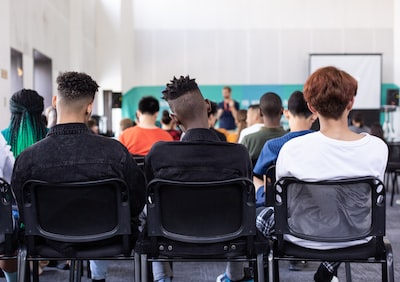The luggage industry in Asia has been undergoing massive growth in recent years. However, amidst this boom, there has been a concerning rise in misinformation surrounding the industry.
It is essential to address this issue promptly, as misinformation can have detrimental effects on consumers, manufacturers, and our overall reputation. In this article, we will explore five expert strategies to tackle misinformation in Asia’s leading luggage PR.
From fact-checking to engaging with consumers directly, these approaches aim to enhance transparency, debunk myths, and ultimately protect the interests of both businesses and consumers. By implementing these strategies, the luggage industry in Asia can foster a more informed and trustworthy environment, ensuring that accurate information prevails over misconceptions.
Table of Contents
Types of Fake News
PR agencies must stay vigilant and employ effective strategies to protect their brand reputation in the face of misinformation. Understanding the various types of fake news in the industry is a crucial first step. From rumors of product defects to false claims about company policies, misinformation can damage a brand’s image. PR professionals need strong communication tactics to counteract false narratives. They can utilize channels like social media and press releases to promptly deliver accurate information. Building trust with stakeholders is equally important. This can be achieved through transparent and authentic communication, as well as active engagement with customers and media. By implementing crisis management strategies and staying proactive, PR agencies in the luggage industry can effectively navigate the challenges posed by misinformation and safeguard their reputation.
Impact on PR Industry
To combat misinformation, conducting thorough research and fact-checking is key. By vetting data and sources, PR practitioners can reduce the risk of being entangled in misinformation. Building strong relationships with journalists and industry influencers is also beneficial.
By nurturing these connections, PR experts can use their expertise to address false narratives about their brand. Proactive monitoring and analysis tools are useful in identifying and combating misinformation in real-time. Engaging with customers and stakeholders through various channels, like interactive websites, podcasts, and webinars, helps establish direct communication and foster trust.
Furthermore, education is vital in combating misinformation in the PR industry. PR agencies should invest in continuous training programs to enhance staff media literacy and critical thinking skills. This enables professionals to differentiate between credible sources and misleading information, improving PR campaign accuracy and effectiveness.
Maintaining a strong online presence by consistently publishing informative and engaging content is essential. By being a reliable source of information, PR agencies can position themselves as trusted industry experts, reducing the risk of their messages being overshadowed by misinformation. Employing these strategies empowers PR professionals to navigate the challenging landscape of misinformation and uphold their clients’ integrity and reputation with confidence.
Effective Communication Tactics
To start, it is crucial to take a proactive approach. PR professionals should have a clear plan to address and expose false information. This may involve creating a team to monitor media channels and social media platforms for misinformation. Responding promptly to false claims and correcting them with accurate information helps stop the spread of misinformation.
Using storytelling is an effective communication strategy. Creating compelling narratives that showcase the brand’s authenticity and values helps build trust with the audience. Sharing success stories, testimonials, and case studies can counteract the impact of misinformation by highlighting positive experiences and outcomes associated with the brand.
Building strong media relationships is also important. Establishing connections with journalists and media outlets allows PR professionals to present accurate information and use their expertise to combat misinformation. Collaborating with influencers and industry experts can further amplify these efforts, as their endorsement adds credibility and authenticity to the brand’s message.
Trust-building Strategies
PR agencies can engage with customers, respond to queries, and address false claims promptly. By sharing accurate information and debunking rumors through social media, brands can regain control and build trust. Partnering with influential individuals in the luggage industry is also a powerful tactic. These influencers can help spread accurate information and counteract misinformation. Their authority and credibility can influence consumer perception and establish the brand as a reliable source of information.
Maintaining open and transparent communication channels is key. This includes regularly updating the brand’s website, newsletter, and official communication platforms with accurate information about product releases, promotions, and relevant updates. By providing customers with up-to-date information directly, the risk of misinformation spreading is reduced.
Additionally, conducting media outreach and engaging with journalists can play a crucial role in combating misinformation. Sharing truthful and verified information with media outlets allows PR agencies to influence the news narrative and ensure accurate coverage of their brand.
In Asia’s leading luggage PR, a holistic approach that combines social media engagement, influencer partnerships, transparent communication channels, and media outreach can effectively combat misinformation.
Crisis Management Tips
PR agencies can create informative content to educate consumers on identifying and verifying trustworthy information sources. This includes sharing fact-checking tips, highlighting reliable news outlets, and promoting media literacy. Encouraging critical thinking and empowering individuals to question information sources can contribute to a more informed society that is less susceptible to misinformation.
Another effective strategy is collaborating with credible organizations and associations. By partnering with reputable industry bodies or academic institutions, PR agencies can use their expertise and resources to combat misinformation. Co-creating educational campaigns, organizing workshops, or hosting panel discussions focused on accurate information can raise awareness and promote fact-based discourse.
Collaborative efforts like these not only strengthen the credibility of the PR agency but also amplify the impact of accurate information dissemination. By employing an educational approach and fostering partnerships with reputable organizations, PR agencies can play a crucial role in combating misinformation. By promoting media literacy and providing access to reliable information sources, they can contribute to a more informed public and help mitigate the negative effects of misinformation on individuals and society as a whole.
AffluencePR: Leading the Fight Against Fake News and Misinformation for PR Agencies in Asia’s Luggage Store Industry
In today’s fast-paced digital age, managing fake news and misinformation has become an increasingly pressing challenge for PR agencies across the globe. As the demand for reliable information and trustworthy sources intensifies, AffluencePR emerges as a beacon of light in navigating this complex landscape.
With their extensive expertise in the PR industry, this Singapore-based integrated marketing agency has established itself as a leader in combating fake news and misinformation.Through their comprehensive range of services, AffluencePR empowers PR agencies in Asia specializing in luggage stores to effectively tackle this pervasive issue.
From branding strategies to marketing positioning, their team of professionals is well-equipped to craft compelling narratives that dispel false claims and build trust. Moreover, their unrivaled expertise in public relations and digital/social media campaign management enables them to swiftly identify and counteract false information, ensuring that the truth prevails.
Backed by robust marketing research, AffluencePR‘s approach is evidence-based and data-driven, allowing PR agencies to make informed decisions and effectively communicate the authenticity of their clients’ offerings. In this era of information overload, where misinformation can spread like wildfire, AffluencePR stands as a steadfast ally, assisting PR agencies in Asia to uphold their credibility and ultimately cater to the discerning consumer in the ever-evolving market.
Frequently Asked Questions
The main goal is to improve the accuracy and reliability of information related to Asia’s Leading Luggage PR.
Misinformation can lead to false perceptions about Asia’s Leading Luggage PR, impacting its reputation and credibility.
Misinformation can be identified through fact-checking, verifying sources, and cross-referencing information.
Some expert strategies include promoting media literacy, improving transparency, encouraging responsible sharing of information, and addressing misinformation promptly.
Media literacy can be promoted through educational campaigns, workshops, and providing resources to help individuals critically analyze and evaluate information.
Wrap Up
In an era where information spreads at an alarming pace, managing fake news and misinformation has become a crucial challenge for PR agencies in Asia’s luggage stores. The advent of social media platforms has given rise to a new breed of rumors, conspiracy theories, and distorted narratives that can easily corrode a brand’s reputation.
In order to navigate this treacherous landscape, PR professionals must adopt a multifaceted approach. They need to stay vigilant, constantly monitoring online conversations to identify the earliest signs of misinformation.
At the same time, PR agencies must develop robust crisis communication strategies, capable of swiftly debunking false claims and setting the record straight. Merely reacting to misinformation is not enough; proactive efforts are necessary to build a resilient and trusted brand.
Transparency should be the guiding principle, ensuring that customers and stakeholders have access to accurate information. Collaboration with reputable fact-checking organizations and media outlets can serve as a shield against fake news, providing a reliable source of verified information for those seeking the truth.
Ultimately, managing fake news and misinformation requires an agile mindset and a commitment to uphold the values of truth and integrity. By adopting these strategies, PR agencies in Asia’s luggage stores can protect their clients’ brand image and maintain the trust of their audiences in an increasingly chaotic media landscape.






